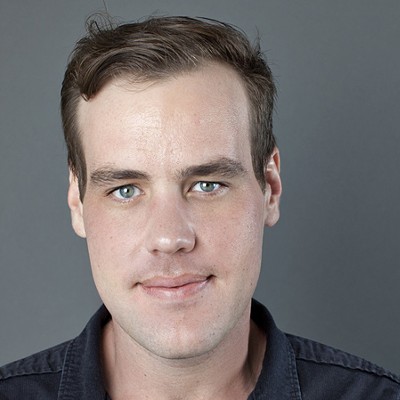What do "I just flew in and, boy, are my arms tired," "Take my wife, please," and the Florida Democratic Party have in common? They're all worn-out jokes with punch lines that have been told too many times.
With the exception of the reelection of Sen. Bill Nelson (a holdover from a different era of Florida politics), the party has won exactly one nonpresidential statewide race in the 21st Century: when Alex Sink claimed a single term as CFO. This despite the fact that Barack Obama has won Florida twice and that Democratic voters increasingly outnumber Republicans in the state.
The party has a decent chance to turn that around in 2016. Sen. Marco Rubio is widely expected to run for president, leaving his Senate seat up for grabs without a strong Republican heir apparent. That election will coincide with a presidential contest, during which voter turnout tends to be better for the Democratic Party.
So far, only U.S. Rep. Patrick Murphy of Palm Beach County has announced his candidacy, and the Florida Democratic establishment is quickly coalescing around him. The problem: Murphy was a registered Republican until running for Congress in 2012 and remains Florida's single most moderate Democrat in the House, often siding with Republicans. He won't even deny having voted for George W. Bush for president.
Liberal factions of the party are skeptical and have begun mounting opposition to Murphy's presumed frontrunner status. The result: The party is already at war with itself a year and a half before the election.
Leading the anti-Murphy charge is the Democratic Progressive Caucus of Florida (DPCF), an officially chartered caucus founded in 2011 to provide a liberal voice in a state party that many believe leans too cautiously moderate.
"When it comes to the race shaping up to replace Marco Rubio, we believe that Floridians are looking for a bold champion who will inspire and engage voters," DPCF President Susan Smith said in a statement earlier this week. "We can't afford to lose more seats to Republicans by running former Republicans, or Democrats who otherwise can't be distinguished from Republicans."
"Florida voters who are looking to vote for a conservative will no doubt prefer the eventual Republican candidate over the Republican-lite one," Walton County Democratic Executive Committee Chair Frank Day added in the same statement. "Just ask Gov. Charlie Crist. I remember when Florida Democrats were told we had to rally around Crist because he was the only 'viable' candidate who can raise lots of money. And what happened to Crist? Voters looked at him and his opponent and couldn't tell the difference."
The DPCF hopes liberal Congressman Alan Grayson will enter into a primary against Murphy. Grayson has said he won't make a decision yet, and now isn't a good time for him anyway. (He officially agreed to an annulment of his marriage today.)
Some leaders in the Florida Democratic Party apparently don't like the idea of opposing views and democracy, however. St. Lucie County Democratic Chairwoman Celeste Bush released a letter today calling for the FDP to "decertify" the progressive caucus.
"They have assumed authority for party actions that was not theirs to command. A lot of work, money, and effort has gone into the decision that Patrick Murphy had made with the help of the true leaders of our Party," Bush wrote. "If these 'so called' leaders have a candidate they prefer, they should encourage him to rise out of the crowd and commit himself.
"The experiment with having a 'Democratic' Progressive Caucus has obviously failed. They have assumed power they do not have," Bush continued, adding that progressives apparently don't have a spot in the Florida Democratic Party. "Decertify the 'Democratic' Progressive Caucus for this action. Let them be who they are: 'Progressives.' Let them try to get the attention of the media with that moniker."
This, of course, is all party infighting and is just one shade of the larger problem with the FDP: It doesn't win elections, and it continues to lose elections by running milquetoast moderates. Murphy is perhaps one of the most moderate candidates in that long list of defeated Alex Sinks, Charlie Crists, and Bill McBrides. (To what extent he proves to be milquetoast remains to be seen.)
Democrats outside of the party's official governing structure remain behind. Tampa Mayor Bob Buckhorn, believed to have his eye on the governor's office in 2018, endorsed Murphy earlier this week.
"Ideologically, [Murphy] is exactly where most Floridians are," Buckhorn told the Tampa Bay Times. "We are not a state of the extremes. We are a state of the middle."
Of course, that's been the Democrats' playbook for the past 15 years, and they continue to lose. Republicans, meanwhile, have not been afraid to let their primaries remain more competitive. That's resulted in the rise of Rick Scott and Marco Rubio, politicians who can be extreme, openly oppose positions that polls indicate most Floridians support, and certainly aren't anywhere near the middle.
Florida may be a purple state with a lot of moderate voters, but that often means elections are decided by which party has better turnout at the polls. Republicans continue to win by running candidates that excite their base. Democrats continue to lose by running former Republicans.
[
{
"name": "Air - MediumRectangle - Inline Content - Mobile Display Size",
"component": "19274298",
"insertPoint": "2",
"requiredCountToDisplay": "2"
},{
"name": "Editor Picks",
"component": "17482312",
"insertPoint": "4",
"requiredCountToDisplay": "1"
},{
"name": "Inline Links",
"component": "18711090",
"insertPoint": "8th",
"startingPoint": 8,
"requiredCountToDisplay": "7",
"maxInsertions": 25
},{
"name": "Air - MediumRectangle - Combo - Inline Content",
"component": "17482310",
"insertPoint": "8th",
"startingPoint": 8,
"requiredCountToDisplay": "7",
"maxInsertions": 25
},{
"name": "Inline Links",
"component": "18711090",
"insertPoint": "8th",
"startingPoint": 12,
"requiredCountToDisplay": "11",
"maxInsertions": 25
},{
"name": "Air - Leaderboard Tower - Combo - Inline Content",
"component": "17482313",
"insertPoint": "8th",
"startingPoint": 12,
"requiredCountToDisplay": "11",
"maxInsertions": 25
}
]











